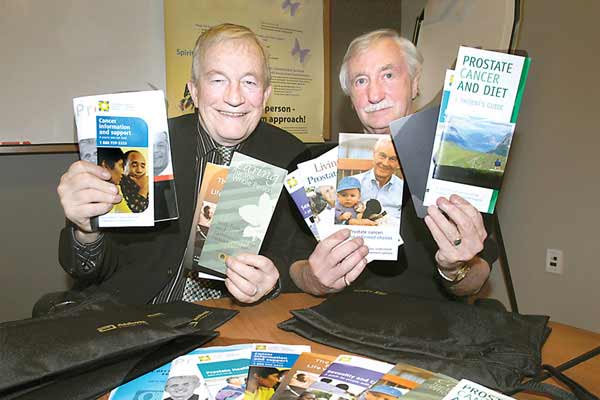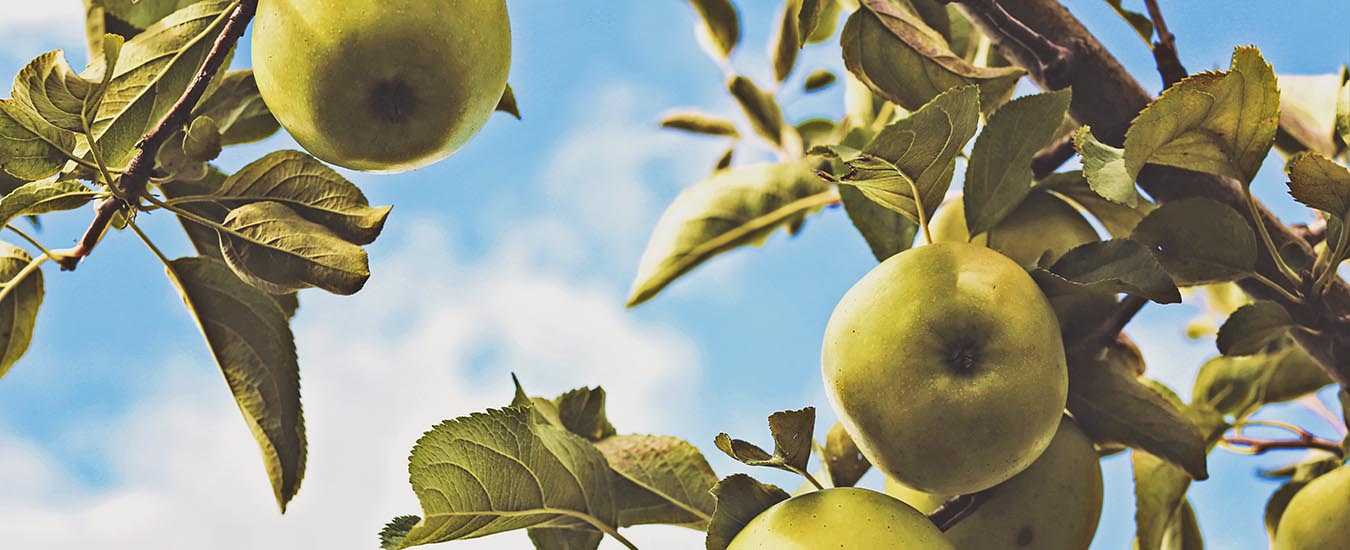Norm Fotheringham says his brother saved his life. Now, he spends his time trying to do the same for other men. Twelve years ago Fotheringham didn't even know what a prostate was… until his brother was diagnosed with prostate cancer. "I went to get mine checked, and sure enough I had cancer."
The prostate is a walnut-sized gland near the rectum at the base of the penis. Its primary job is to produce fluid for semen, though it also controls the flow of urine. Prostate cancer is the most common form of cancer among men: one in seven Canadian men will develop it in his lifetime.
Fotheringham describes his late brother as a "macho man." He says, like so many men, he wouldn't go see a doctor. By the time he did, the cancer had metastasized and there was nothing to be done. "My operation was in April of 1998 and he died in June," says Fotheringham, who now travels the Island with the PEI Prostate Cancer Support Group trying to educate men about their risk of prostate cancer and the absolute importance of early detection.
Prostate cancer is most likely to develop after age 50. It is a slow growing tumour while confined inside the prostate, but once it gets outside it can move quickly. So far, early detection is the best weapon in fighting the disease. Doctors recommend two methods of screening for men with no family history and who are older than 50-a digital rectal exam and a PSA (prostate specific antigen) blood test. (African Canadian men and those with a family history of the disease should be screened earlier.)
"I didn't know the first thing about it," says Fotheringham. "I didn't have anybody to come in and talk to me about it. That's why I'm so involved with the support group." He adds, it's not an easy job because men just don't want to talk about it.

"If they've got a problem in that area they don't want to let anybody know they've got a problem. See where women, if they've got a bit of a lump or something, they'll talk about it."
That reluctance to talk is where many get frustrated. The number of men diagnosed annually is on par with, and often exceeds, breast cancer, but funding and awareness are dishearteningly different. Pink ribbons and pink products are available everywhere yet, in Atlantic Canada, 1,700 women were diagnosed with breast cancer last year but more than 2,300 men were diagnosed with prostate cancer. Survival rates are comparable.
Research funding is as out of balance as awareness. In 2007, Canadian researchers received $54.6 million for breast cancer research while prostate cancer research funding totalled $17.2 million-or 31.5 per cent.
Dr. David Bell, head of the Department of Urology at the University of Dalhousie, suggests the difference is that breast cancer has a very high profile and well organized campaign. "It's a movement and it is a well orchestrated fundraising initiative." <
But with the creation of a national organization called Prostate Cancer Canada, Dr. Bell says a lot of good work is being done. He hopes the new body will streamline funds to where they are needed most. Breast cancer, in contrast, has a lot of organizations supporting the cause.
Despite the disparity with breast cancer, a lot of work is being done. Treatment options are expanding and, in terms of research funding, prostate cancer is well ahead of many of the other, more deadly, cancers like lung and colorectal.
Greater awareness about the disease is helping more and more men catch the disease early. "Years ago men never talked about prostate cancer," says Dr. Bell. "Now it's become quite a topical thing. Now you get guys like Arnold Palmer getting diagnosed … and announcing the story at the Masters."
Tolson Chapman has seen a big change recently too in his work with prostate cancer survivors in Newfoundland. "We're getting the word out there. Every year there are more people in Newfoundland being diagnosed because they are aware now of symptoms and signs, so early awareness is very important."
A survivor himself, Chapman wishes he'd had much of this information before his diagnosis. Two years ago, his PSA levels rose to a point where his doctors ordered a biopsy, but the tumour had already spread beyond the prostate gland and he endured 32 radiation treatments. So far he remains cancer free, but wishes he'd acted much sooner. "If I had known what I know now 10 years ago, my detection would have been much earlier."
Chapman, now 70, works with the Avalon chapter of the Prostate Cancer Support Group. In the last 10 years, that group has toured the province with a 40-minute PowerPoint presentation aimed at convincing men of the need for early detection.
So far, 35,000 people in Newfoundland have seen the presentation and Chapman hopes many more will.
"The numbers being detected every year are rising. Awareness is out there and that's why there is more detection."
But even with early detection, prostate cancer is not an easy road. Initial treatment options involve radiation, surgery, or both, and hormone therapy to chemotherapy if the initial treatment fails (which is a rela-tively low risk unless the tumour is aggressive and the cancer is not prostate confined when discovered).
Upon detection, surgery is the most recommended first option, but early radiation can also provide a cure. A radical prostatectomy is the total removal of the prostate. The impact of both treatments can be difficult for men to process. Short term, or in some cases longer term, partial impotence is one side effect, as is partial incontinence. Both problems tend to improve over time.
Getty Vasista is a sexual health counsellor and registered nurse who works with prostate cancer patients in Halifax. She says the effects of prostate cancer treatment can have a profound impact on men and their self-esteem. She sees men who are depressed, who are reluctant to talk about erectile problems with loving and committed partners, and who are often ashamed of their own health. "They are putting all this pressure on themselves," says Vasista. "They think, 'well this is my job, I have to get a good rigid erection. I want to please my wife.'"
After a prostatectomy, she says, all men will lose sexual function and the length of time it takes to return can vary. The impact is hard to take for most men. "Cancer, and then on top of that sexuality changes, that's just devastating for them."
Dr. Bell says Nova Scotia has been a national leader when it comes to working out how to deal with the post-prostate cancer issues. Researchers at Dalhousie have been at the forefront of work looking at the importance of family-centre follow-up care for these men.
That emotional impact of prostate cancer is part of what keeps Norm Fotheringham working with survivors more than a decade after his own diagnosis. "Sometimes I'll get a call, if somebody's having a pretty hard time with it, I'll go sit down with them at Tim Hortons or I'll meet them wherever they want to meet and just sit down and chat."
He says the impact of the disease can be hard, but not catching it early is worse. Despite the potential difficulties, he says early detection is still the best way to save lives. He just wishes some men could get past their own fears, or their own ego, and see the doctor early.
"It's a damn shame because what they're doing is they're playing with their own lives. If they get it early enough, it can be cured."
Prostate Cancer Awareness Events in Atlantic Canada in 2010
Halifax Father's Day Walk/Run: Sunday, June 2010
P.E.I. Father's Day Walk Run, Sunday, June 2010
Fight Gone Bad: Fredericton fundraiser with CrossFit Gyms
Walk a Mile in His Shoes: various communities across Newfoundland, June through September 2010
Movember: An international month celebrating the moustache and men's health, with particular emphasis on prostate cancer, November 2010
Local Super Fruits May Lead to Prostate Cancer Suppression
Long known by locals to be a part of a healthy diet, Charlottetown based researchers are discovering cranberries and low-bush blueberries just might be able to suppress prostate cancer as well. Funded by the National Cancer Research Institute, among other bodies, researchers at the University of Prince Edward Island are discovering specific plant chemicals in the berries can inhibit growth in human prostate cancer cells. "The idea," says researcher Dr. Robert Hurta," is that including these foods in the diet might provide men with protection against these types of cancers."
Already a number of papers have resulted from the work, with evidence being presented to show blueberry chemicals inhibit the Matrix metalloproteinases in the human prostate cancer cells. Another paper is under consideration showing cranberries do have an effect on prostate cancer at the cellular level. Pomegranate is not local, but is also thought to have beneficial results and juice is easy to find year-round.
Dr. Hurta cautions this is still in the formative stages of research, but says the idea is to provide evidence that including cranberries and low-bush blueberries as part of a cancer healthy diet would have benefits for all men, but particularly those who are already watching their PSA levels closely.
Beyond just a healthy diet, Dr. Hurta says," the goal is to find the exact nature of the compounds in the food that are protective or preventive towards the development of prostate cancer."
